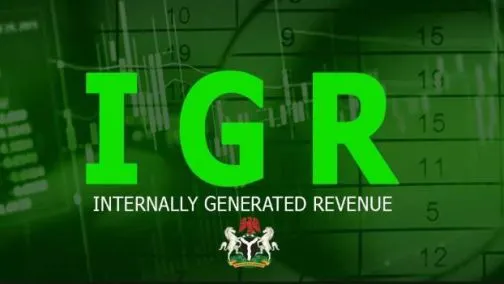Generating internally generated revenue (IGR) is a crucial aspect of state governance, especially in Nigeria, where poverty and economic inequality continue to be prevalent. While state governments need to generate revenue to fund their activities, it is equally essential to invest in state capacity to improve revenue collection and the provision of social services.
However, prioritising IGR collection over other economic and social development priorities may not be the most effective approach to achieving sustainable economic growth. An excessive focus on tax collection from vulnerable businesses and individuals could have adverse consequences on their livelihoods and may not be the optimal solution to promote economic development.
Taxes, such as personal income tax (PIT), consumption taxes (including VAT) and Property Tax, also contribute to the tax revenue of state governments. PIT remains the largest contributor due to its broader tax base and the fact that it applies to a wide range of income levels and sources.
According to data from the National Bureau of Statistics, PIT is the largest source of IGR for most states in Nigeria. For example, PIT accounted for over 50 per cent of internally generated revenue for states such as Lagos, Rivers, Oyo, and Kaduna. However, except for Oyo, these states have unemployment rates roving around 40 per cent.
First and foremost, relying on PIT as a source of IGR can be problematic from an economic perspective. The principles of taxation, espoused by economists, suggest that taxes should be levied fairly, efficiently, and progressively. This means that taxes should be structured not excessively to burden the poor and vulnerable and should be levied on those who can afford to pay.
Advocates of higher IGR say only about 20 million Nigerians are paying taxes. They also say Nigeria’s tax-to-GDP ratio, six per cent, is one of the lowest in the world. But they fail to acknowledge the underlying issues in the country. Based on the available data, prioritising tax collection at the state level in Nigeria poses a significant risk of worsening poverty and inequality. Those able and willing to work are estimated to be around 70 million, but a third are unemployed.
, Adamawa, Cross River, Yobe, Akwa Ibom and Abia are facing an unemployment rate of over 50 per cent. The country has 133 million people in multidimensional poverty, 63 per cent of the population. Poverty levels across states vary significantly, with multidimensional poverty peaking at 91 per cent in Sokoto.
As observed, there is a reason why only a small percentage of the population currently pays taxes. In contrast, most financially struggling citizens are not included in the tax system for a reason too. Therefore, focusing on tax collection may further disadvantage the poor and contribute to a widening income gap.
The situation creates a vicious cycle of poverty and underdevelopment, where the poor cannot invest in their businesses, improve their skills, or build their assets. So, the focus on tax collection at the state level can disproportionately burden those struggling to make ends meet.
Another point to note is that advocates of higher IGR at the state level always call for effective tax collection without acknowledging the issues. It can be counterproductive when state governments prioritise IGR collection without first investing in the necessary infrastructure and capacity building.
Effective tax collection and administration require skilled personnel, technology and legal frameworks, among other things.
Without these resources, revenue collection efforts may be inefficient and ineffective, resulting in underinvestment in capacity building. This, in turn, can lead to poorly functioning revenue collection systems that cannot generate sufficient revenue to improve infrastructure and capacity. Therefore, state governments must invest in building the necessary infrastructure and capacity before prioritising IGR collection to ensure efficiency and effectiveness.
It is important to consider the principles of taxation, which suggest that taxes should be imposed in a manner that does not excessively burden fragile businesses or industries. Small and medium-sized enterprises (SMEs) are widely recognised as the driving force behind economic growth, especially in developing nations like Nigeria.
However, SMEs in Nigeria face a multitude of challenges, including a difficult business environment, limited access to financing, and inadequate infrastructure such as electricity. Taxing these fragile businesses could have a negative impact on economic growth and development.
Imposing taxes excessively or without considering the economic situation can discourage investment and hinder entrepreneurial activity. This is especially true for SMEs, which form the backbone of Nigeria’s economy. They face significant challenges, including limited access to finance, lack of infrastructure, and regulatory barriers, which high tax burdens can further exacerbate.
If state governments focus too heavily on revenue collection without first addressing these underlying challenges, they risk imposing additional burdens on already fragile businesses, which could ultimately stifle economic growth and development. Investment, on the other hand, can be a powerful driver of economic growth and equitable development. It can create jobs, increase productivity, and promote innovation, potentially raising revenues.
So, governors should create an enabling environment while ensuring the tax burden is shared fairly and proportionately to taxpayers’ ability to pay. Of course, they should also ensure that corruption is dealt with to prevent the leakages of tax collection.
Finally, IGR advocates should acknowledge you can’t squeeze blood from a stone. So let’s focus on building a strong economic foundation to support sustainable growth and equitable development.


